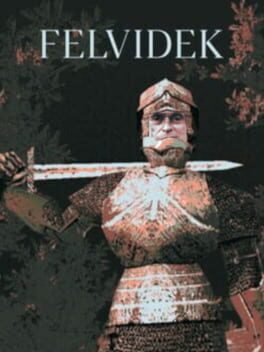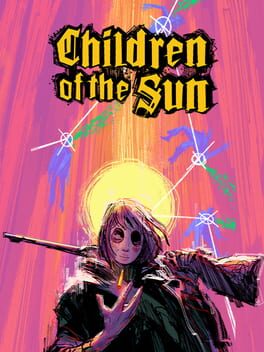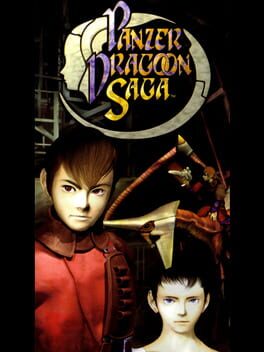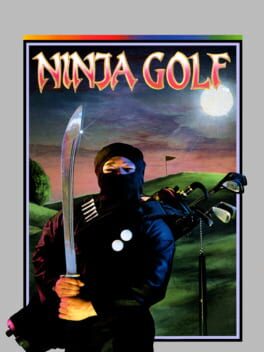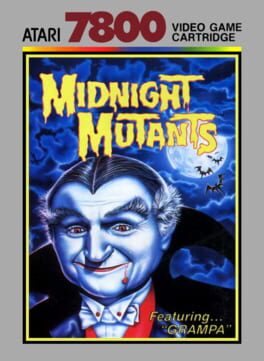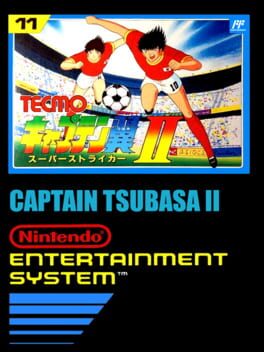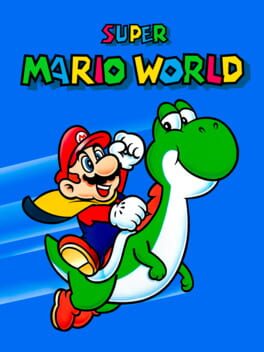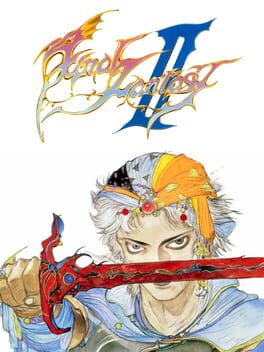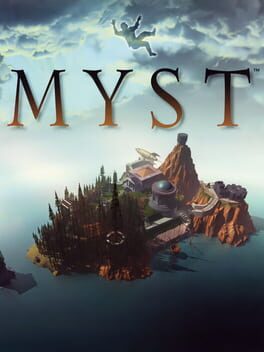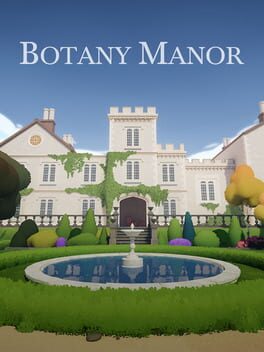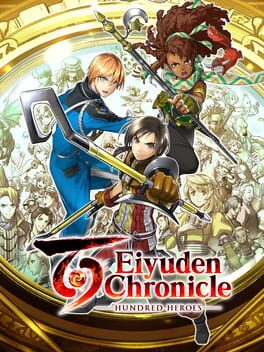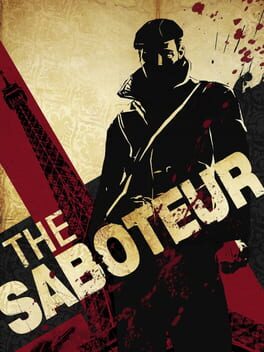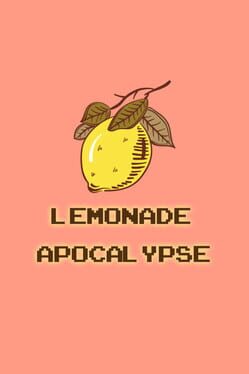Dalaamclouds
BACKER
793 Reviews liked by Dalaamclouds
Felvidek
2024
I'm not typically a fan of RPG maker games by their gameplay, but definitely the vibes can win me over, and Felvidek has some unique vibes. I was happy to be running around the little late-medieval kingdom fighting off heretical demons with my priest buddy for a few hours...
I kind of got lost in all of the names and factions, but the game was the right length that it wasn't really a big issue.
I kind of got lost in all of the names and factions, but the game was the right length that it wasn't really a big issue.
Children of the Sun
2024
Children Of The Sun is a highly stylised puzzle shooter that takes the bullet time moments from Sniper Elite and develops the idea into a full game. Most levels consist of scouting the location and marking enemies before executing a Wanted style bullet bending blood bath.
The story is one of revenge that sees the protagonist taking her anger out on a cult that left her family in ruin and death. Children Of The Sun presents its story via brief comic style cutscenes providing short insights into the history of the main character and their relationship to the cult. Most levels are separate from the story and just see you taking down stronger and stronger outpost as you get ever closer to the cult leader. Occasionally however there will be a level that directly progress the story but these are few and far between and only near the end of the game.
Gameplay wise Children Of The Sun strives to take a small idea and stretches it as far as creatively possible. This leads to some fun and unique concepts that don't overstay their welcome. With the core mechanic being bullet time this idea develops and introduces bullet redirection, slow-mo and high caliber speed to tackle a variety of different enemy types and scenarios. Latter gameplay becomes more of a puzzle game as you try to solve who to kill first and who to keep alive for a latter redirection. I did find this to become quite tedious in particularly the last 2 levels as I got relative stuck for extended periods of time due to either poor puzzle execution or long distance aim (I was playing on my Steam Deck and may have had better luck with a mouse).
One of the biggest drawbacks I found was the mini games that were randomly thrown in. These were not good and felt really out of place. Thankfully there wasn't many and only 1 was particularly difficult, but I feel it would have been a better experience with the removed completely.
The mood and atmosphere for Children Of The Sun is great and can be particularly satisfying at times. However there doesn't seem to be much keeping me engaged. You can battle other players for a high score but apart from that Children Of The Sun feels very one and done.
The story is one of revenge that sees the protagonist taking her anger out on a cult that left her family in ruin and death. Children Of The Sun presents its story via brief comic style cutscenes providing short insights into the history of the main character and their relationship to the cult. Most levels are separate from the story and just see you taking down stronger and stronger outpost as you get ever closer to the cult leader. Occasionally however there will be a level that directly progress the story but these are few and far between and only near the end of the game.
Gameplay wise Children Of The Sun strives to take a small idea and stretches it as far as creatively possible. This leads to some fun and unique concepts that don't overstay their welcome. With the core mechanic being bullet time this idea develops and introduces bullet redirection, slow-mo and high caliber speed to tackle a variety of different enemy types and scenarios. Latter gameplay becomes more of a puzzle game as you try to solve who to kill first and who to keep alive for a latter redirection. I did find this to become quite tedious in particularly the last 2 levels as I got relative stuck for extended periods of time due to either poor puzzle execution or long distance aim (I was playing on my Steam Deck and may have had better luck with a mouse).
One of the biggest drawbacks I found was the mini games that were randomly thrown in. These were not good and felt really out of place. Thankfully there wasn't many and only 1 was particularly difficult, but I feel it would have been a better experience with the removed completely.
The mood and atmosphere for Children Of The Sun is great and can be particularly satisfying at times. However there doesn't seem to be much keeping me engaged. You can battle other players for a high score but apart from that Children Of The Sun feels very one and done.
Panzer Dragoon Saga
1998
Absolutely beautiful - a game that manages to push the Saturn to its absolute limits, boasting a lot of things for a game on a console which was very complex to work with, and was inferior to its competition.
It's just so shocking how wonderfully crafted everything in this game is - from the fully voiced cutscenes with motion capture, to the unique worlds with a blend of fantasy and sci-fi, and a wonderful hybrid combat system managing to combine the on-rail shooting from the previous games and a real-time JRPG system similar to Final Fantasy VI - it's clear the devs wanted to end the Saturn with a bang, and they definitely did.
Everything in this game is full of life - there's never a dull moment in the world of Panzer Dragoon, and nothing feels forced in or out of place, everything serves some purpose, whether its the main characters that are integral to the plot, or travelers you pass by, every character, even the fully detailed monsters that add to the post-apocalyptic setting, it all just comes together wonderfully and creates a completely unique experience - there is nothing else like it, and there will never be anything else like it.
It's just a damn shame that this game never sold any copies. Critics praised pretty much every aspect of this game when it came out, and initial copies of the game has all sold out in just two days of the game releasing in North America, so for Sega to completely ditch this game and bury it with the already dying Saturn is pretty tragic, should have gotten a re-release or a remaster but apparently the source code has been lost to time as well. At least we have emulation i guess.
It's just so shocking how wonderfully crafted everything in this game is - from the fully voiced cutscenes with motion capture, to the unique worlds with a blend of fantasy and sci-fi, and a wonderful hybrid combat system managing to combine the on-rail shooting from the previous games and a real-time JRPG system similar to Final Fantasy VI - it's clear the devs wanted to end the Saturn with a bang, and they definitely did.
Everything in this game is full of life - there's never a dull moment in the world of Panzer Dragoon, and nothing feels forced in or out of place, everything serves some purpose, whether its the main characters that are integral to the plot, or travelers you pass by, every character, even the fully detailed monsters that add to the post-apocalyptic setting, it all just comes together wonderfully and creates a completely unique experience - there is nothing else like it, and there will never be anything else like it.
It's just a damn shame that this game never sold any copies. Critics praised pretty much every aspect of this game when it came out, and initial copies of the game has all sold out in just two days of the game releasing in North America, so for Sega to completely ditch this game and bury it with the already dying Saturn is pretty tragic, should have gotten a re-release or a remaster but apparently the source code has been lost to time as well. At least we have emulation i guess.
Ninja Golf
1990
Ninja Golf exists because golf is a stupid sport played by boring old men. The developers recognized this and realized the only way to fix it was to have you run after your ball as a Ninja while beating people to death in the vain attempt to make golf interesting. The brawler portions are surprisingly good, but the entire loop gets repetitive quickly, and you're still playing golf at the end of the day.
Midnight Mutants
1990
A decent open world action adventure game. The visuals are serviceable, and the gameplay works well enough despite the perspective not meshing with the controls, but you get used to it. If you told me Jeff Minter had a hand in this game, I'd believe you, since the bosses feel very Minteresque to coin a word.
Super Mario World
1990
Outro que zerei mais para testar o Miyoo Mini Plus. Na verdade nem ia zerar, só dar umas passeada em alguns níveis testando o direcional e botões. Mas uma coisa levou a outra e acabei pegando o atalho da Star Road. É com alegria que confirmo que os controles são absolutamente responsivos e bem confortáveis. Ah, e o jogo é o de sempre, bonzão e divertido.
Super Mario World
1990
Final Fantasy II
1988
As we should all know, the original Final Fantasy was pretty successful, selling around 1.3 million copies by 1994, and the game itself still holds up pretty well all the way to today. It may be incredibly basic for an RPG, but it was one that established plenty of elements found in not just the Final Fantasy franchise, but also for many other RPGs to follow, and it can still be fun to play…. that is, if you are playing one of its remakes. So, with this success fresh on the company’s minds, Square decided that they needed to make a follow-up, and they did make this follow up less then a year later. Unfortunately though, we would never end up getting this game over here in the west initially, and we wouldn’t see any kind of follow-up to Final Fantasy over here until Final Fantasy IV for the SNES, which was released as Final Fantasy II to try to avoid any confusion……. which ended up causing confusion for many ever since. Great job guys. But anyway, just a mere 15 years later, the west would then finally get an official release for the original Final Fantasy II.
If you are familiar with the mainline Final Fantasy games, you may be aware of the fact that this game is considered to be the black sheep of the franchise, or at least, one of the earlier ones. Granted, a lot of the game, on the surface level, is very similar to the first game, so a lot of it is faithful to the original, but as you play the game, you will notice several changes made to the game that almost no other Final Fantasy game would use after this. Sure, some of these changes didn’t really impact how most of the game is played, but then there are some that change up the experience completely, making for what is a somewhat sloppy followup. Personally, I did end up liking Final Fantasy II back when I initially played through it, but yeah, I can definitely say that I would prefer the original game over this. Yes, there is still a lot to love about this sequel, but the changes made are just enough to make it hard for me to ever come back to it after all this time.
The story is bigger and more in depth then the previous game, this time focusing on four specific characters rather then four blank slates like in the previous game, and having a much darker tone, with multiple tragedies occurring throughout the game, such as towns being destroyed and people dying all the time, which is pretty impressive to see for an NES game, and some aspects of it are appealing, but there are some certain elements that do drag it down and make it more… stupid, the graphics are about on the same level as the original game, but there is still that same amount of detail and love put into it, with some aspects being changed around, so it is an improvement all around, the music is definitely not as memorable as the original game, but there are still quite a few songs in here that I genuinely loved, like the main overworld theme and the main battle theme, the control is the exact same as the first game, so no need to talk about it anymore, and the gameplay is very similar to that of the original game, but with quite a few changes and additions, for better or worse.
The game is still your traditional turn-based RPG, where you take control of Firian, Maria, Guy, and a bunch of other random fourth party members until ultimately ending with Leon, travel across an overworld to visit many different towns, caves, and dungeons, talk to plenty of NPCs to either learn useful information to aid you in your quest, or to buy numerous items like weapons, armor, spells, and regular healing stuffs, and of course, get into random battles, where you will take turns in trading attacks with plenty of different monsters, using either regular melee attacks or spells, and level up at points when you have defeated enough enemies. For the most part, it stays true to the main gameplay of the original Final Fantasy, and to its credit, it does introduce plenty of elements that are either unique to this entry, or would become staples of the series from here on out.
The first change made was the inclusion of the Word Memory system, where whenever you talk to certain NPCs, sometimes you will see highlighted words in their dialogue, which you can then record down and save for later. From here, you can then use these key words with other NPCs, and depending on what word you use with a specific person, it will result in them aiding you in your quest. This is actually a pretty cool idea, and one that would definitely be useful if fleshed out more, but here in this game, it is really not anything too exciting. Really, at the end of the day, it is just a means to get you from Point A to Point B with extra steps involved, which could be neat for some players, but for me, it just seems unnecessary when in most other RPGs, you just have all the information stored in your character’s brain, and you can tell it to others without needing to scroll through a list. Aside from that though, we also get Chocobos in this game, which are basically the Yoshis of the Final Fantasy series, and while they don’t really do that much here, I still love to see them and ride around on them when I can, and then there is also Cid, who would become a recurring character throughout the series from this point on, with multiple different variations of him being included in many other games.
However, there is one main change to this game that was implemented that will either make or break your experience with Final Fantasy II: the leveling up system. Like I mentioned before, the battles in this game work basically the exact same way as the original game, but the way you gain levels is completely changed over from the original game. Instead of regularly gaining experience and leveling up while increasing your stats every time like in most RPGs, here in Final Fantasy II, you gain levels primarily based on what you do in battles. For example, if you have someone who uses a sword a lot in battles, they will have their Sword Level increased if used enough times, if you have someone that primarily uses a Bow, then their Bow Level will increase, and so on and so forth. In addition to that, you can only gain boosts to your health, defense, and other stats if the player takes a lot of damage or flees from fights, and you can pretty much see where the issue lies with this.
For me, personally, I like this idea when it comes to leveling up your character, but unfortunately, this is implemented into the game very poorly. It is very easy to either be completely screwed by this system to where you will be constantly underleveled whenever you venture forth with the main quest, or you can be completely overpowered and make every single boss fight and encounter in this game a complete joke. Not to mention, some of the ways that you have to manage getting these levels are completely absurd and take way more time than necessary. For example, like I mentioned earlier, in order to increase your health stat, you have to take a lot of damage, so the only real way to have that happen on a regular basis is by having your party members beat the everloving fuck out of each other just enough to where they won’t die, but they will get more health. When it came to my first playthrough of this game, I didn’t use this strategy because I am a normal human being with common sense, which meant that I thought “low health = bad things for me”, so because of this, I was constantly underpowered and getting fucked over by a lot of strong enemies, making the entire experience much more stressful then it needs to be.
And it sucks too, because honestly, there is a lot to love about Final Fantasy II. The story, while certainly more dark and depressing then the previous game, is one that I really liked, and was rare to see for games on the NES, the inclusion of Chocobos and Cid was pretty great to see, and the main gameplay is fun and engaging enough like the previous game. However, this one mechanic completely drags the entire game’s quality down, making it so that you can’t ever have a normal playthrough of this game. You can either take advantage of the system to overpower everything, or get bum rushed by everything else, which is not the kind of system you want for your RPG. This, coupled with the lackluster Word Memory system and even with other things I didn’t mention like the trap rooms in dungeons, make this a pretty rough follow-up to what was a basic, but still good first entry.
Overall, despite still keeping the core gameplay intact and implementing new features and additions that are pretty good and would continue to be seen in the series, the poor leveling up system drags the entire thing down to where I wouldn’t necessarily call it bad, but instead, overly frustrating to play, and thus, makes it inferior to its previous installment. I would recommend it for those who are fans of the Final Fantasy franchise, as well as those who are fans of RPGs in general, but just be aware of what you are getting into whenever you hit that start button. And just like with the original game, don’t go out of your way to play the original version. Play through any one of the remakes or the Pixel Remaster, because they will make the experience much better for you as a whole. But hey, I guess we have to be thankful that this type of game exists, because since it does, Square Enix knows now how to properly use this system, and hasn’t reused it for Final Fantasy all that much. It’s nice to see them learn from their mistakes. I just wish they could do that more often nowadays.
Game #407
If you are familiar with the mainline Final Fantasy games, you may be aware of the fact that this game is considered to be the black sheep of the franchise, or at least, one of the earlier ones. Granted, a lot of the game, on the surface level, is very similar to the first game, so a lot of it is faithful to the original, but as you play the game, you will notice several changes made to the game that almost no other Final Fantasy game would use after this. Sure, some of these changes didn’t really impact how most of the game is played, but then there are some that change up the experience completely, making for what is a somewhat sloppy followup. Personally, I did end up liking Final Fantasy II back when I initially played through it, but yeah, I can definitely say that I would prefer the original game over this. Yes, there is still a lot to love about this sequel, but the changes made are just enough to make it hard for me to ever come back to it after all this time.
The story is bigger and more in depth then the previous game, this time focusing on four specific characters rather then four blank slates like in the previous game, and having a much darker tone, with multiple tragedies occurring throughout the game, such as towns being destroyed and people dying all the time, which is pretty impressive to see for an NES game, and some aspects of it are appealing, but there are some certain elements that do drag it down and make it more… stupid, the graphics are about on the same level as the original game, but there is still that same amount of detail and love put into it, with some aspects being changed around, so it is an improvement all around, the music is definitely not as memorable as the original game, but there are still quite a few songs in here that I genuinely loved, like the main overworld theme and the main battle theme, the control is the exact same as the first game, so no need to talk about it anymore, and the gameplay is very similar to that of the original game, but with quite a few changes and additions, for better or worse.
The game is still your traditional turn-based RPG, where you take control of Firian, Maria, Guy, and a bunch of other random fourth party members until ultimately ending with Leon, travel across an overworld to visit many different towns, caves, and dungeons, talk to plenty of NPCs to either learn useful information to aid you in your quest, or to buy numerous items like weapons, armor, spells, and regular healing stuffs, and of course, get into random battles, where you will take turns in trading attacks with plenty of different monsters, using either regular melee attacks or spells, and level up at points when you have defeated enough enemies. For the most part, it stays true to the main gameplay of the original Final Fantasy, and to its credit, it does introduce plenty of elements that are either unique to this entry, or would become staples of the series from here on out.
The first change made was the inclusion of the Word Memory system, where whenever you talk to certain NPCs, sometimes you will see highlighted words in their dialogue, which you can then record down and save for later. From here, you can then use these key words with other NPCs, and depending on what word you use with a specific person, it will result in them aiding you in your quest. This is actually a pretty cool idea, and one that would definitely be useful if fleshed out more, but here in this game, it is really not anything too exciting. Really, at the end of the day, it is just a means to get you from Point A to Point B with extra steps involved, which could be neat for some players, but for me, it just seems unnecessary when in most other RPGs, you just have all the information stored in your character’s brain, and you can tell it to others without needing to scroll through a list. Aside from that though, we also get Chocobos in this game, which are basically the Yoshis of the Final Fantasy series, and while they don’t really do that much here, I still love to see them and ride around on them when I can, and then there is also Cid, who would become a recurring character throughout the series from this point on, with multiple different variations of him being included in many other games.
However, there is one main change to this game that was implemented that will either make or break your experience with Final Fantasy II: the leveling up system. Like I mentioned before, the battles in this game work basically the exact same way as the original game, but the way you gain levels is completely changed over from the original game. Instead of regularly gaining experience and leveling up while increasing your stats every time like in most RPGs, here in Final Fantasy II, you gain levels primarily based on what you do in battles. For example, if you have someone who uses a sword a lot in battles, they will have their Sword Level increased if used enough times, if you have someone that primarily uses a Bow, then their Bow Level will increase, and so on and so forth. In addition to that, you can only gain boosts to your health, defense, and other stats if the player takes a lot of damage or flees from fights, and you can pretty much see where the issue lies with this.
For me, personally, I like this idea when it comes to leveling up your character, but unfortunately, this is implemented into the game very poorly. It is very easy to either be completely screwed by this system to where you will be constantly underleveled whenever you venture forth with the main quest, or you can be completely overpowered and make every single boss fight and encounter in this game a complete joke. Not to mention, some of the ways that you have to manage getting these levels are completely absurd and take way more time than necessary. For example, like I mentioned earlier, in order to increase your health stat, you have to take a lot of damage, so the only real way to have that happen on a regular basis is by having your party members beat the everloving fuck out of each other just enough to where they won’t die, but they will get more health. When it came to my first playthrough of this game, I didn’t use this strategy because I am a normal human being with common sense, which meant that I thought “low health = bad things for me”, so because of this, I was constantly underpowered and getting fucked over by a lot of strong enemies, making the entire experience much more stressful then it needs to be.
And it sucks too, because honestly, there is a lot to love about Final Fantasy II. The story, while certainly more dark and depressing then the previous game, is one that I really liked, and was rare to see for games on the NES, the inclusion of Chocobos and Cid was pretty great to see, and the main gameplay is fun and engaging enough like the previous game. However, this one mechanic completely drags the entire game’s quality down, making it so that you can’t ever have a normal playthrough of this game. You can either take advantage of the system to overpower everything, or get bum rushed by everything else, which is not the kind of system you want for your RPG. This, coupled with the lackluster Word Memory system and even with other things I didn’t mention like the trap rooms in dungeons, make this a pretty rough follow-up to what was a basic, but still good first entry.
Overall, despite still keeping the core gameplay intact and implementing new features and additions that are pretty good and would continue to be seen in the series, the poor leveling up system drags the entire thing down to where I wouldn’t necessarily call it bad, but instead, overly frustrating to play, and thus, makes it inferior to its previous installment. I would recommend it for those who are fans of the Final Fantasy franchise, as well as those who are fans of RPGs in general, but just be aware of what you are getting into whenever you hit that start button. And just like with the original game, don’t go out of your way to play the original version. Play through any one of the remakes or the Pixel Remaster, because they will make the experience much better for you as a whole. But hey, I guess we have to be thankful that this type of game exists, because since it does, Square Enix knows now how to properly use this system, and hasn’t reused it for Final Fantasy all that much. It’s nice to see them learn from their mistakes. I just wish they could do that more often nowadays.
Game #407
Myst
1993
Behold, my 1500th video game! This special occasion warrants nothing less than a super special review. So, what did I think? Well first, some backstory.
This past year or 2, I've been obsessed with playing games that are considered foundational. Sometimes, I don't enjoy them but I'm still glad I played them for the historical value alone which has been the case for games such as Colossal Cave Adventure, Mystery House, or Portopia. Other times, I find some of my unexpected favourite games that are actually very fun such as Wizardry, Fantasy Zone, or... oh yeah, another game by Myst's developers called The Manhole!
When I played The Manhole and its 3D remake last year, I was very captivated! These are 2 games where there is no real objective but to take in the scenery. Just explore and find hilarious imagery while listening to wacky characters. No win condition, no lose condition, no timer, no stress. In a way, this is a really avant garde method of showing that video games are more than their title suggests. That being, they aren't just "games" played for the sake of winning but perhaps important pieces of art.
With how hyped up Myst has been over the years, I decided I would make it my 1500th game on Backloggd (Jesus I've been on this site for years) knowing that it would be something special and, well....
Look. I immensely respect what Myst is going for. I really love how inspired it is, and I am sure the pre-rendered graphics were mindblowing to 1993 audiences. It's neat how several of my beloved games such as Drowned God were blatantly inspired by it, and it's arguably the most important game in the last 30 or so years due to how it was the big boom for PC gaming the world needed.
Yet, I can't feel passionately about it the way I can with The Manhole or Wizardry or even the likes of Colossal Cave Adventure. It is hard for me to be captivated by Myst's legacy when many point and click/adventure games predate it and, in my opinion, have far better QOL, gameplay, and storytelling.
As far as point and click games from before 1993 go, I have a lot of favourites. Uninvited felt like a very kinetic and replayable game with a unique horror feel. Monkey Island 1-2 are still some of the most entertaining and hilarious games I've experienced, boasting incredible artstyles and early popularization of dynamic music. The Manhole, again, was one of the very first entertainment CD-roms and it's still rather fun. Alter Ego having barely any pictures and still being one of the most engaging, deeply written games I've experienced. Hell, when looking at niche Japanese games I'm impressed at how Cosmology of Kyoto, Otogirisou, or Ihatovo Monogatari managed to breathe new life into the game medium as a whole, displaying such artistry that even the likes of Roger Ebert were impressed.
All this is to say that I don't understand at all why Myst is often defended on the basis of "well it's a 30 year old game" especially when other point-and-clicks like Monkey Island before it are still popular today. Hell, Monkey Island is probably much more fun to revisit for the average player. Monkey Island doesn't receive memes like this, at least certainly not with any frequency https://pbs.twimg.com/media/E9tXrGBWYAYBtfc.png
When trying to wrap my head around what made Myst so popular beyond the graphics, I looked at the development history behind the game and found this https://youtu.be/EWX5B6cD4_4
Myst was meant to give players a bang for their buck, resulting in a design based around "brute force" real estate to explore. With no win or lose conditions, the player could feasibly spend weeks if not months on the game. And it doesn't stop there, there is what seems to be a deliberate lack of QOL.
I found myself constantly frustrated by Myst. The save feature restarts the player at the beginning of the area rather than saving their progress, contrary to other even older adventure games. Batteries near the dock drain rather fast and need to be constantly recharged. Activating the large tree elevator is an annoying process. The main character is too much of a moron to carry two pages at a time, so if the player wants to experience every FMV they are forced to go through the same area twice, some of which can be rather confusing to navigate. The sound puzzles where the player must match 5 different sound effects in a row with very large margin of error might as well just say "fuck the deaf and the tone deaf players" good lord. I personally felt the pace broken when 10 minutes into the game I was compelled to read 4 mini-novels in a row. And perhaps most importantly, I had trouble making out a single full sentence in the red and blue books due to the overloaded static noises in the cutscenes.
Are there things I appreciate about Myst? Sure! This is far from a game without merit. The minimalist presentation is rather beautiful, with the pre-rendered images and FMVs still holding their own against photorealistic graphics from far stronger hardware. The atmosphere can be rather immersive a lot of the time, with the sound effects being very convincing for every action in the game. I rec listening to this part of the Ars Technica documentary, since it explains things better than I could https://youtu.be/EWX5B6cD4_4?t=860
It's truly a technical engineering feat. Also, after the player obtains the true ending, they are allowed to just explore the island. It really gives me the impression their earlier work on The Manhole helped shape some decisions in this game, and that's just lovely.
Well, that's Myst. It's a technically impressive game, but far from a fun one in my opinion. It was only while writing this review that, perhaps, it hit me.
Everybody has their own unique perspective and experiences that shapes them into the EPIC GAMER they are today. I saved Myst for a rainy day, subconsciously putting it on a pedestal in my head. Most of the people who told me how much they loved Myst mentioned it being a formative artistic experience for them. Could it be because I had the liberty of playing so many untranslated JP adventure games, more modern adventure games, and so forth before Myst, its impact was lost on me?
1500 games is a lot of fucking games. There is an alternate universe out there where I was fascinated by Myst and fell in love with it, rather than found it frustrating in my mid 20s. In fact, this is what one of the developers theorized; only maybe half of players even left the first island. Yet, so many young players who discovered the game left with quite an impression, that they played something which resonated with them FOR the unfamiliar mystique, rather than despite it https://youtu.be/EWX5B6cD4_4?t=1070
When I started typing this review, I wasn't sure if I was happy I played Myst. Yet now, I feel confident I am happy it was my 1500th game. It was not a waste of time, but a good reminder of how games are more than what I play. They are artistic statements, impressive feats of software development, and parts of our culture. The cynic in me can say Myst is a subpar adventure game that only had any success due to the photorealistic graphics. Yet, I'm more inclined to ask one thing:
Is there any game which better embodies the culture of early PC gaming and the appeal of pre-rendered graphics?
God, I fucking love video games.
https://www.youtube.com/watch?v=e49OXXBX3Ko
This past year or 2, I've been obsessed with playing games that are considered foundational. Sometimes, I don't enjoy them but I'm still glad I played them for the historical value alone which has been the case for games such as Colossal Cave Adventure, Mystery House, or Portopia. Other times, I find some of my unexpected favourite games that are actually very fun such as Wizardry, Fantasy Zone, or... oh yeah, another game by Myst's developers called The Manhole!
When I played The Manhole and its 3D remake last year, I was very captivated! These are 2 games where there is no real objective but to take in the scenery. Just explore and find hilarious imagery while listening to wacky characters. No win condition, no lose condition, no timer, no stress. In a way, this is a really avant garde method of showing that video games are more than their title suggests. That being, they aren't just "games" played for the sake of winning but perhaps important pieces of art.
With how hyped up Myst has been over the years, I decided I would make it my 1500th game on Backloggd (Jesus I've been on this site for years) knowing that it would be something special and, well....
Look. I immensely respect what Myst is going for. I really love how inspired it is, and I am sure the pre-rendered graphics were mindblowing to 1993 audiences. It's neat how several of my beloved games such as Drowned God were blatantly inspired by it, and it's arguably the most important game in the last 30 or so years due to how it was the big boom for PC gaming the world needed.
Yet, I can't feel passionately about it the way I can with The Manhole or Wizardry or even the likes of Colossal Cave Adventure. It is hard for me to be captivated by Myst's legacy when many point and click/adventure games predate it and, in my opinion, have far better QOL, gameplay, and storytelling.
As far as point and click games from before 1993 go, I have a lot of favourites. Uninvited felt like a very kinetic and replayable game with a unique horror feel. Monkey Island 1-2 are still some of the most entertaining and hilarious games I've experienced, boasting incredible artstyles and early popularization of dynamic music. The Manhole, again, was one of the very first entertainment CD-roms and it's still rather fun. Alter Ego having barely any pictures and still being one of the most engaging, deeply written games I've experienced. Hell, when looking at niche Japanese games I'm impressed at how Cosmology of Kyoto, Otogirisou, or Ihatovo Monogatari managed to breathe new life into the game medium as a whole, displaying such artistry that even the likes of Roger Ebert were impressed.
All this is to say that I don't understand at all why Myst is often defended on the basis of "well it's a 30 year old game" especially when other point-and-clicks like Monkey Island before it are still popular today. Hell, Monkey Island is probably much more fun to revisit for the average player. Monkey Island doesn't receive memes like this, at least certainly not with any frequency https://pbs.twimg.com/media/E9tXrGBWYAYBtfc.png
When trying to wrap my head around what made Myst so popular beyond the graphics, I looked at the development history behind the game and found this https://youtu.be/EWX5B6cD4_4
Myst was meant to give players a bang for their buck, resulting in a design based around "brute force" real estate to explore. With no win or lose conditions, the player could feasibly spend weeks if not months on the game. And it doesn't stop there, there is what seems to be a deliberate lack of QOL.
I found myself constantly frustrated by Myst. The save feature restarts the player at the beginning of the area rather than saving their progress, contrary to other even older adventure games. Batteries near the dock drain rather fast and need to be constantly recharged. Activating the large tree elevator is an annoying process. The main character is too much of a moron to carry two pages at a time, so if the player wants to experience every FMV they are forced to go through the same area twice, some of which can be rather confusing to navigate. The sound puzzles where the player must match 5 different sound effects in a row with very large margin of error might as well just say "fuck the deaf and the tone deaf players" good lord. I personally felt the pace broken when 10 minutes into the game I was compelled to read 4 mini-novels in a row. And perhaps most importantly, I had trouble making out a single full sentence in the red and blue books due to the overloaded static noises in the cutscenes.
Are there things I appreciate about Myst? Sure! This is far from a game without merit. The minimalist presentation is rather beautiful, with the pre-rendered images and FMVs still holding their own against photorealistic graphics from far stronger hardware. The atmosphere can be rather immersive a lot of the time, with the sound effects being very convincing for every action in the game. I rec listening to this part of the Ars Technica documentary, since it explains things better than I could https://youtu.be/EWX5B6cD4_4?t=860
It's truly a technical engineering feat. Also, after the player obtains the true ending, they are allowed to just explore the island. It really gives me the impression their earlier work on The Manhole helped shape some decisions in this game, and that's just lovely.
Well, that's Myst. It's a technically impressive game, but far from a fun one in my opinion. It was only while writing this review that, perhaps, it hit me.
Everybody has their own unique perspective and experiences that shapes them into the EPIC GAMER they are today. I saved Myst for a rainy day, subconsciously putting it on a pedestal in my head. Most of the people who told me how much they loved Myst mentioned it being a formative artistic experience for them. Could it be because I had the liberty of playing so many untranslated JP adventure games, more modern adventure games, and so forth before Myst, its impact was lost on me?
1500 games is a lot of fucking games. There is an alternate universe out there where I was fascinated by Myst and fell in love with it, rather than found it frustrating in my mid 20s. In fact, this is what one of the developers theorized; only maybe half of players even left the first island. Yet, so many young players who discovered the game left with quite an impression, that they played something which resonated with them FOR the unfamiliar mystique, rather than despite it https://youtu.be/EWX5B6cD4_4?t=1070
When I started typing this review, I wasn't sure if I was happy I played Myst. Yet now, I feel confident I am happy it was my 1500th game. It was not a waste of time, but a good reminder of how games are more than what I play. They are artistic statements, impressive feats of software development, and parts of our culture. The cynic in me can say Myst is a subpar adventure game that only had any success due to the photorealistic graphics. Yet, I'm more inclined to ask one thing:
Is there any game which better embodies the culture of early PC gaming and the appeal of pre-rendered graphics?
God, I fucking love video games.
https://www.youtube.com/watch?v=e49OXXBX3Ko
Children of the Sun
2024
I liked the demo enough during Next Fest but unfortunately Children of the Sun proved to be entirely style over substance. What starts off as a neat little sniper puzzler with a Killer 7-esque aesthetic devolves into trial and error, tedium, and wonky hitboxes. In some levels you aren't even able to see every enemy initially so you straight up gotta trial and error it. The later mechanics the games adds feel more like annoying gimmicks and the last level is just an absolute slog and I just gave up because I couldn't find the last damn enemy in all the visual noise and didn't feel like repeating all that shit over and over again just to find them. Easy skip and I regret I'm probably past the refund window.
Botany Manor
2024
A simple and enjoyable puzzle game about growing fantastic plants in the ambiance of a beautiful late 19th century estate. I really like that the game is quickly engaging and perfectly maintains the balance of difficulty, never becoming annoying and always remaining quite interesting in finding solutions to problems. The process of collecting information from various sources (which also tell a good story about the world and the heroine's life) and putting the pieces together into a single way of growing plants is very satisfying, and each plant and the way it is grown feels quite unique. The gradual exploration of the (it should be noted quite beautiful) location is also attractive, although the game does not go too deep into its disclosure. Only the expected social message can lead to a little sadness in this relaxing walk, but on the other hand, it’s good that it is there and that it deepens the story.
A good source of a fairly pleasant and relaxing couple of evenings that doesn't aim to be the next big thing in the genre, but it doesn't need to be. It's enough to be what it is - a good opening entry and just a good game. And after finishing it, I had a strong desire to see more stories about the quiet life in the 19th century, with a focus on the simple life of the people and about social or scientific development; perhaps this is actually a much more interesting direction than another game about space and science fiction.
A good source of a fairly pleasant and relaxing couple of evenings that doesn't aim to be the next big thing in the genre, but it doesn't need to be. It's enough to be what it is - a good opening entry and just a good game. And after finishing it, I had a strong desire to see more stories about the quiet life in the 19th century, with a focus on the simple life of the people and about social or scientific development; perhaps this is actually a much more interesting direction than another game about space and science fiction.
Eiyuden Chronicle: Hundred Heroes asks the important question, "What if you had an RPG with 120 party members", and answers that question to my knowledge the best that it could have given that challenging question. However, I still ask, was it worth it?
While the game boasts a large cast of mostly likeable characters where many of which end up serving a sizeable role in the story, most of these characters end up being one-dimensional save for a handful. As there is not enough time for them to change. Furthermore, most of these characters would have simply been put into NPC roles in a normal RPG if not for the fact that they now are NPCs... but also get to be in your party in a limited fashion. Still, it manages this fairly well in balancing them through having six main party slots, a support slot to allow non-combatant characters to join the party, as well as attendant slots if you don't want a plot relevant character to be in your primary party but still need to keep them around for the story. This all comes together giving a possible order of 10 party members which helps a lot in giving you space to experiment with them, and also to give them relevant party space compared to some other RPGs that attempted really large party sizes in that most of them were not able to give as much screen time and relevance as this game does even with significantly smaller casts. There are some creative ways to force the player to experiment and also to use more characters than a simple 6 from start to finish as well, which helps a lot in making you care about more than just your initial six. With so many to choose from, each player will settle into who they prefer.
The characters also come into the base building, which can be enjoyable apart from how constricting it actually is compared to how it originally appears, as all future upgrade materials are locked behind locations that you only get after completing specific chapters. Carefully keeping players "balanced" to be at about the same level for base building until they can advance the story in order to unlock more materials to expand.
This is where the major problems come in however. Pacing is all over the place, as key parts of an RPG are locked behind getting characters into your party and recruiting them to unlock things at your base of operation. Fast travel for one, is something locked at the 15 hour mark for when you unlock a character that gives you this ability, which means if you do a lot of side content before getting her, you'll be doing a ridiculous amount of backtracking, which the game points out in its story as a problem that you have to solve with this character. At which point... Why couldn't you have unlocked them much sooner? There are many aspects of the game that feel tedious and time-wasting in the same way, like the beigoma minigame that is a ripoff and worse version of Beyblade (There were WAY BETTER Beyblade games on the Gamecube and they didn't even bother to learn why those games were decent before implementing this half-assed minigame that is required to be completed for the true ending). Beigoma are rare items dropped by enemies that are required for the minigame, but you cannot collect them even from enemies that would normally drop them until you reach a certain chapter and can unlock the minigame with the two party members associated with it, meaning you have to then backtrack to get the beigomas you didn't originally get because it wasn't possible to get them. The very boring cooking minigame (That is required to do for the true ending), has long load-screens and is mostly RNG apart from selecting meals that are bland in order to appease the most characters, with a 15 minute timer you have to wait between matches before you can continue the sidequest. Star items, of which some are required to fully experience some minigames are items that randomly can spawn in shops and if played the way the game is meant to be played, are a random chance you check back on every 30 minutes (Unless you savescum which is clearly not intentional). Not to mention the atrocious load times on Switch and Playstation 4 which cause you to waste even more time as most stores require a long loading screen, most minigames require a long loading screen, fast traveling requires a long loading screen, etc. And so much more random things to get in the way of your progress and cause tedium and pointless timewasting.
Speaking of the minigames and all the sidecontent itself... It is pretty poor. The best of the games, the card game and the theater are completely optional, with the card game not even being required to be played any more than the tutorial match since unlocking the related character is done through collecting 120 cards, which is done through purchasing card packs. There is no traveling to fight card opponents, they are all your characters in the base in a drab and boring menu, and you can easily just buy as many card packs as you want to win against all of them for pitifully weak rewards that range from potions to the equivalent of phoenix downs. So there is absolutely zero incentive to play the minigame beyond it being the funner one of the lot. The theater is surprisingly dense, with a ridiculous amount of effort put into it with every character being voiced for every theater role in a goofy way that allows you to see their characters shine which makes it the most entertaining minigame in the post game... And for what? You have to earn the theater scripts by doing the tedious savescumming at shops, and you don't earn anything meaningful by doing all the plays with S-ranks. Then, that leaves the egg-racing which is one of the worst of the breeding racing minigames in RPGs I have seen, with a requirement for you to have every egg race 6 times in races that last for 2 minutes (With long load times before start and finish) to get the option to feed them, and only after they are done being fed from 6 races, can you breed them... With another egg that also did 6 races. With S-rank eggs basically being required to get the actually good items you can't just farm, that are still not that significantly good or worth it for hours of wasted time on an unfun uninteractive horse-racing minigame. What about beigoma? The game that is pointless to do early on because all your combatants will have rank 2 beigoma, which decimate your starting beigoma no matter what strategy you put into it since the game is mostly just about stats and type-match ups vs. any player input. Making it questionable why they even bother letting you do it without letting you farm beigoma ahead of time. Or how to advance the beigoma storyline you need to win matches against worthless jobbers in every city before the story beigoma characters will even give you a chance to stretch it out as much as possible (Which I remind you, is required for the true ending). What about the cooking minigame? Which is just you picking the same two safe meal options with one that you think your specific contestants will like (They probably won't even like it even if you pick something that tastes similar to their favorite foods), and then mashing the X or A button for a minute and... That's it. The main challenge comes from the RNG of which of your characters get chosen as judges. Do it 15 times while having 15 minute increments between each of them for more pointless time wasting (Which is required for the true ending). These things shouldn't have been mandatory, and more than that, more time and effort should have been put into all of them if they were going to make it into the game period. So much effort was put into the theater which I love, which could have just been put into the other minigames to make them better and more enjoyable instead of slogs.
Speaking of slogs, the gameplay: While I did enjoy the overall gameplay of the game, there was much to be left desired. Every character is viable, but certainly some will be a lot better than others, especially at different points of the game. Most characters are nearly identical apart from having maybe one unique skill on each character (If they're lucky), and none if they're unlucky. The most blessed ones have two or more unique skills, because SP is the name of the game up until the end game. Magic is nearly worthless until the end game with all magic doing pitiful damage and only being useful for healing. Until the end game where it becomes an unstoppable and overpowered force, meaning all your magic characters early on are weak, and endgame are your most busted. SP then is the game changer, where characters that have good SP skills are your champs, with the major thing to focus on being extremely powerful hero combos depending on team comp, and ignoring the ones that are useless since they do just about as much damage as a regular attack, same as early game magic. With so many characters and selecting their actions before each turn, there is some strategy and some fun ways to manipulate the system, but its still too slow. They did some smart techniques to make combat go faster, and it still isn't enough, as you'll want to be using the auto-battle through most of the game, which is not a good sign. Some of the boss fights are designed horrendously, with the worst ones at the start of the game, with one where the HP balancing felt off with one character having as much HP as mid game bosses in the second major boss fight, and the other having a complete RNG left or right choice that if you're unlucky means you have a very long drawn out fight. I really want to love the battle system, but it's poorly implemented even though it had good ideas for how to deal with having so many party members.
The game is also very buggy as of me writing. I had experienced over 20 crashes costing me progress, with 2 soft-locks on my PS4 version. With the auto-save being so slow with periods where it wouldn't autosave for 3 hours at a time, this was completely unacceptable.
Then... What's the point? I've been completely negative in this review until now, so why did I bother finishing this game? Well, primarily the presentation. The voice acting of every single character, the theater, the visuals, the animations (Albeit you can clearly see when they ran out of time with some cut scenes where the characters don't have running animations), and heart of this game kept me going. Its very pleasant to look at, to hear, and to experience in that way, and if not for that I would have stopped playing long ago. The duels while suffering the same problems as all the other minigames give cool one on one spectacle fights, same with the war scenarios which feel like you are leading armies even if it was rather slow and pretty thoughtless. As well, the story was alright.
The story is pretty generic, but with nice twists and turns, some nice political drama, and good character moments. I particularly enjoyed Perrielle through the story, and how each leader of the League of Nations were distinct in their failure against the fascistic Aldric who was a fun campy villain. My major complaint would just be the lack of commentary on some issues, while there is mention of racism against the animal folk of the game, its not really felt as much as it should be and could have been pushed more along with asking questions about the Alliance and Guardians instead of them being purely "good guys". Feels a bit too clean when we had drama of Seign overcoming his allegiances. As well... The end game feels a bit rushed, with a missing prince plotline that is mentioned but never elaborated on or seen beyond just being told it was done off screen. Similarly, at the start of the game when a villain has someone in their grasp they just let them go without question? You can feel where they ran out of time.
So, we return to that original question. "What if we had an RPG with 120 party members?" Well, the real answer is, we'd get an RPG where characters fight for screen time, at least half if not more will be required to dip out of the story and have no presence to avoid bloating, and we'll end up with a story where not very much of consequence can happen because that'd remove characters from that big 120 character selling point on the back of the box. I just don't think its worth it in the end, even if Eiyuden Chronicle did it in probably the best hypothetical way I could think of. This game isn't that bad, but the tedium and chore it is to play certainly drags it down a lot, especially with its technical problems. There is heart here, and I want to like it a lot more, but I can't bring myself to. I'm curious to see how the Suikoden series matches to this game, so I'll likely be looking at those games after playing this. All in all, a very low end 3/5.
While the game boasts a large cast of mostly likeable characters where many of which end up serving a sizeable role in the story, most of these characters end up being one-dimensional save for a handful. As there is not enough time for them to change. Furthermore, most of these characters would have simply been put into NPC roles in a normal RPG if not for the fact that they now are NPCs... but also get to be in your party in a limited fashion. Still, it manages this fairly well in balancing them through having six main party slots, a support slot to allow non-combatant characters to join the party, as well as attendant slots if you don't want a plot relevant character to be in your primary party but still need to keep them around for the story. This all comes together giving a possible order of 10 party members which helps a lot in giving you space to experiment with them, and also to give them relevant party space compared to some other RPGs that attempted really large party sizes in that most of them were not able to give as much screen time and relevance as this game does even with significantly smaller casts. There are some creative ways to force the player to experiment and also to use more characters than a simple 6 from start to finish as well, which helps a lot in making you care about more than just your initial six. With so many to choose from, each player will settle into who they prefer.
The characters also come into the base building, which can be enjoyable apart from how constricting it actually is compared to how it originally appears, as all future upgrade materials are locked behind locations that you only get after completing specific chapters. Carefully keeping players "balanced" to be at about the same level for base building until they can advance the story in order to unlock more materials to expand.
This is where the major problems come in however. Pacing is all over the place, as key parts of an RPG are locked behind getting characters into your party and recruiting them to unlock things at your base of operation. Fast travel for one, is something locked at the 15 hour mark for when you unlock a character that gives you this ability, which means if you do a lot of side content before getting her, you'll be doing a ridiculous amount of backtracking, which the game points out in its story as a problem that you have to solve with this character. At which point... Why couldn't you have unlocked them much sooner? There are many aspects of the game that feel tedious and time-wasting in the same way, like the beigoma minigame that is a ripoff and worse version of Beyblade (There were WAY BETTER Beyblade games on the Gamecube and they didn't even bother to learn why those games were decent before implementing this half-assed minigame that is required to be completed for the true ending). Beigoma are rare items dropped by enemies that are required for the minigame, but you cannot collect them even from enemies that would normally drop them until you reach a certain chapter and can unlock the minigame with the two party members associated with it, meaning you have to then backtrack to get the beigomas you didn't originally get because it wasn't possible to get them. The very boring cooking minigame (That is required to do for the true ending), has long load-screens and is mostly RNG apart from selecting meals that are bland in order to appease the most characters, with a 15 minute timer you have to wait between matches before you can continue the sidequest. Star items, of which some are required to fully experience some minigames are items that randomly can spawn in shops and if played the way the game is meant to be played, are a random chance you check back on every 30 minutes (Unless you savescum which is clearly not intentional). Not to mention the atrocious load times on Switch and Playstation 4 which cause you to waste even more time as most stores require a long loading screen, most minigames require a long loading screen, fast traveling requires a long loading screen, etc. And so much more random things to get in the way of your progress and cause tedium and pointless timewasting.
Speaking of the minigames and all the sidecontent itself... It is pretty poor. The best of the games, the card game and the theater are completely optional, with the card game not even being required to be played any more than the tutorial match since unlocking the related character is done through collecting 120 cards, which is done through purchasing card packs. There is no traveling to fight card opponents, they are all your characters in the base in a drab and boring menu, and you can easily just buy as many card packs as you want to win against all of them for pitifully weak rewards that range from potions to the equivalent of phoenix downs. So there is absolutely zero incentive to play the minigame beyond it being the funner one of the lot. The theater is surprisingly dense, with a ridiculous amount of effort put into it with every character being voiced for every theater role in a goofy way that allows you to see their characters shine which makes it the most entertaining minigame in the post game... And for what? You have to earn the theater scripts by doing the tedious savescumming at shops, and you don't earn anything meaningful by doing all the plays with S-ranks. Then, that leaves the egg-racing which is one of the worst of the breeding racing minigames in RPGs I have seen, with a requirement for you to have every egg race 6 times in races that last for 2 minutes (With long load times before start and finish) to get the option to feed them, and only after they are done being fed from 6 races, can you breed them... With another egg that also did 6 races. With S-rank eggs basically being required to get the actually good items you can't just farm, that are still not that significantly good or worth it for hours of wasted time on an unfun uninteractive horse-racing minigame. What about beigoma? The game that is pointless to do early on because all your combatants will have rank 2 beigoma, which decimate your starting beigoma no matter what strategy you put into it since the game is mostly just about stats and type-match ups vs. any player input. Making it questionable why they even bother letting you do it without letting you farm beigoma ahead of time. Or how to advance the beigoma storyline you need to win matches against worthless jobbers in every city before the story beigoma characters will even give you a chance to stretch it out as much as possible (Which I remind you, is required for the true ending). What about the cooking minigame? Which is just you picking the same two safe meal options with one that you think your specific contestants will like (They probably won't even like it even if you pick something that tastes similar to their favorite foods), and then mashing the X or A button for a minute and... That's it. The main challenge comes from the RNG of which of your characters get chosen as judges. Do it 15 times while having 15 minute increments between each of them for more pointless time wasting (Which is required for the true ending). These things shouldn't have been mandatory, and more than that, more time and effort should have been put into all of them if they were going to make it into the game period. So much effort was put into the theater which I love, which could have just been put into the other minigames to make them better and more enjoyable instead of slogs.
Speaking of slogs, the gameplay: While I did enjoy the overall gameplay of the game, there was much to be left desired. Every character is viable, but certainly some will be a lot better than others, especially at different points of the game. Most characters are nearly identical apart from having maybe one unique skill on each character (If they're lucky), and none if they're unlucky. The most blessed ones have two or more unique skills, because SP is the name of the game up until the end game. Magic is nearly worthless until the end game with all magic doing pitiful damage and only being useful for healing. Until the end game where it becomes an unstoppable and overpowered force, meaning all your magic characters early on are weak, and endgame are your most busted. SP then is the game changer, where characters that have good SP skills are your champs, with the major thing to focus on being extremely powerful hero combos depending on team comp, and ignoring the ones that are useless since they do just about as much damage as a regular attack, same as early game magic. With so many characters and selecting their actions before each turn, there is some strategy and some fun ways to manipulate the system, but its still too slow. They did some smart techniques to make combat go faster, and it still isn't enough, as you'll want to be using the auto-battle through most of the game, which is not a good sign. Some of the boss fights are designed horrendously, with the worst ones at the start of the game, with one where the HP balancing felt off with one character having as much HP as mid game bosses in the second major boss fight, and the other having a complete RNG left or right choice that if you're unlucky means you have a very long drawn out fight. I really want to love the battle system, but it's poorly implemented even though it had good ideas for how to deal with having so many party members.
The game is also very buggy as of me writing. I had experienced over 20 crashes costing me progress, with 2 soft-locks on my PS4 version. With the auto-save being so slow with periods where it wouldn't autosave for 3 hours at a time, this was completely unacceptable.
Then... What's the point? I've been completely negative in this review until now, so why did I bother finishing this game? Well, primarily the presentation. The voice acting of every single character, the theater, the visuals, the animations (Albeit you can clearly see when they ran out of time with some cut scenes where the characters don't have running animations), and heart of this game kept me going. Its very pleasant to look at, to hear, and to experience in that way, and if not for that I would have stopped playing long ago. The duels while suffering the same problems as all the other minigames give cool one on one spectacle fights, same with the war scenarios which feel like you are leading armies even if it was rather slow and pretty thoughtless. As well, the story was alright.
The story is pretty generic, but with nice twists and turns, some nice political drama, and good character moments. I particularly enjoyed Perrielle through the story, and how each leader of the League of Nations were distinct in their failure against the fascistic Aldric who was a fun campy villain. My major complaint would just be the lack of commentary on some issues, while there is mention of racism against the animal folk of the game, its not really felt as much as it should be and could have been pushed more along with asking questions about the Alliance and Guardians instead of them being purely "good guys". Feels a bit too clean when we had drama of Seign overcoming his allegiances. As well... The end game feels a bit rushed, with a missing prince plotline that is mentioned but never elaborated on or seen beyond just being told it was done off screen. Similarly, at the start of the game when a villain has someone in their grasp they just let them go without question? You can feel where they ran out of time.
So, we return to that original question. "What if we had an RPG with 120 party members?" Well, the real answer is, we'd get an RPG where characters fight for screen time, at least half if not more will be required to dip out of the story and have no presence to avoid bloating, and we'll end up with a story where not very much of consequence can happen because that'd remove characters from that big 120 character selling point on the back of the box. I just don't think its worth it in the end, even if Eiyuden Chronicle did it in probably the best hypothetical way I could think of. This game isn't that bad, but the tedium and chore it is to play certainly drags it down a lot, especially with its technical problems. There is heart here, and I want to like it a lot more, but I can't bring myself to. I'm curious to see how the Suikoden series matches to this game, so I'll likely be looking at those games after playing this. All in all, a very low end 3/5.
